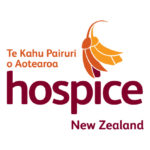High Court confirms euthanasia has no place in palliative care. (June 2020)
Our request for a declaratory judgement on the End of Life Act.
Ahead of the 2020 General Election and referendum Hospice NZ joined forces with colleagues at ANZSPM and PCNNZ to seek a declaratory judgement from the Hight Court on certain aspects of the End of Life Choice Act.
When we reviewed the End of Life Choice Act, we were concerned with the lack of clarity and detail when it came to the potential application of the Act. We knew the Act would not be revisited as the Parliamentary process was complete. Following legal advice, we found it necessary to ask for a Declaratory Judgment from the High Court and did so during April/May/June of 2020.
We sought clarity for four questions:
- Whether an organisation such as a hospice can conscientiously object to Assisted Dying and operate a ‘euthanasia-free’ service.
- Whether a DHB or other funding agency can decline to fund or contract with an organisation if it does not agree to provide Assisted Dying services.
- Whether the Act’s mandatory obligations on a health practitioner override the ethical, clinical or professional judgments of that practitioner and their obligations under the Code of Health and Disability Consumers’ Rights.
- Whether a health practitioner may exercise a right of conscientious objection on the basis that they hold as a core value that they must not act in a way that is contrary to their ethical, clinical or professional judgment and obligations.
The Attorney General requested that all medical organisations who had made a submission to the Justice Select Committee be served to offer them the opportunity to apply for intervener status. The rationale for this was they would have an interest and perspective on the request and would be impacted by any declaration that was made. Of the seven served – two applied and were given intervener status – Palliative Care Nurses New Zealand and the Australian and New Zealand Society of Palliative Medicine. The New Zealand Medical Association declined to be interveners but provided a statement to support our request for the Declaratory Judgment. The Attorney-General was represented by Dale La Hood and provided submissions and representation.
The Judgment in summary
Organisations such as hospice have a right to hold conscientious objection – and the Crown should not be able to override that through funding decisions.
The Court ruled that organisations such as hospice can have an entrenched moral ethos that qualifies for protection under the right to freedom of conscience in the New Zealand Bill of Rights Act 1990. This means that organisations like hospice services, aged care facilities or GP practices for example, can object to assisted dying as set out in the End of Life Choice Act happening on their premises by their staff. Justice Mallon appreciated the ethos of palliative care and how placing the option of assisted dying on the table could undermine palliative care delivery. This is important recognition of why an organisation such as hospice should be able to “opt out” of providing the services described in the EOLC Act.
It is important to note that this option is also available to other health care provider organisations following the judgement. There are a range of health care providers who may wish to create a safe space for staff, volunteers, patients and family members who do not wish to be exposed to the practice of euthanasia while receiving care, in their place of work or, in the case of aged residential care residents, their home.
The Attorney General conceded that the Ministry cannot compel any service provider to provide assisted dying services, with Justice Mallon reiterating that funding decisions must be made lawfully, considering that organisations are legally allowed to offer euthanasia-free services.
The mandatory provisions in the Act do not override the Code of Health and Disability Consumer’s Rights.
Judge Mallon made it clear that the mandatory obligations in the Act do not override the standard ways in which a health care practitioner determines competency and informed consent without coercion. There is concern that the Act sets a much lower standard for both as part of the assessment process. However, Doctors and Nurse Practitioners will
be required to comply with all their usual duties and obligations, for example the standards for informed consent by the Medical Council and the Ministry of Health guidelines for responding to elder abuse and neglect. A practitioner must decline to follow a direction in the Act if they are not satisfied under existing professional standards.
The attending medical practitioner must have appropriate qualifications and experience to undertake assisted dying services
Judge Mallon clarified the definition of attending medical practitioner – despite being defined in the broadest possible terms in the Act. The judgement outlines that an attending medical practitioner in the case of this Act, must be practicing within a scope of practice that includes care of the dying (yet to be developed for EOLC), and have been involved in the patient’s care. They must also have sufficient skill, expertise and knowledge of the patient to be able to properly undertake the assessments, provide the advice and reach the opinions required of them. Any doctor who does not meet these requirements would be expected to transfer on the patient’s care to someone appropriately qualified and experienced.
The full judgment is available here – Hospice New Zealand v Attorney-General EOLC Act Judgement June 2020

